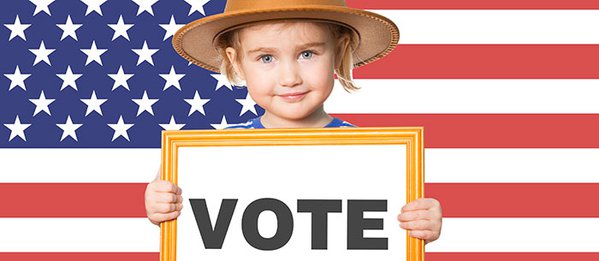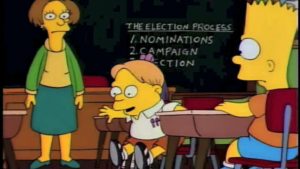- 30 years experience in the field of Special Education
How to Talk to Kids about Politics
How to Improve Memory
August 8, 2017
How to Deal with Anxiety in Kids
August 22, 2017 “I’m not interested in politics.” The problem with this statement is that ‘politics’ is interested in you. It’s also interested in your children. The political climate is everywhere in our modern world, particularly since the advent of social media. And … your child and social media? They’re closer than you’ll ever know. Your child most assuredly is reading or hearing about all things political nearly every day, whether in school, around their friends, or on their myriad technological devices. For this reason, you should talk with your children about the political information they’re getting. Shari Duddy and her colleagues among the top teachers in New Jersey have some ideas on how to talk with your kids about politics.
“I’m not interested in politics.” The problem with this statement is that ‘politics’ is interested in you. It’s also interested in your children. The political climate is everywhere in our modern world, particularly since the advent of social media. And … your child and social media? They’re closer than you’ll ever know. Your child most assuredly is reading or hearing about all things political nearly every day, whether in school, around their friends, or on their myriad technological devices. For this reason, you should talk with your children about the political information they’re getting. Shari Duddy and her colleagues among the top teachers in New Jersey have some ideas on how to talk with your kids about politics.
Adapt the discussion
Child psychologists recommend that parents speak with their children about politics, but that they do it in such a way as to temper it to their age group. Naturally, not all children can process discussion the same. They need you to choose words they’ll relate to and understand. For instance, very young children may understand the job of President of the United States if he or she is referred to in terms of being a parent to a country. As they grow, you can better explain the position in terms of freedom and leadership rather than parenting because they’ll better understand such concepts. Children’s understanding of the people climate and the different jobs of leaders in government will blossom as they get older, and their school environment will help them to learn things in more abstract terms. But don’t push an agenda with your child. Allow them to grow into curiosity about such things.
 Allow your kids to form their own opinions
Allow your kids to form their own opinions
It’s natural for you to want to get your children to see your side when it comes to your political opinions. However, it’s more important that you help your child learn to think critically and form their own opinions. You likely have a bias about the things that are occurring in the political world, and sharing those beliefs with your children is part of being a parent. A bigger part, however, is teaching your child to be his or her own person. Stay open minded when you talk about politics with your child. Try to remember your own political beliefs at their age. Above all, keep the lines of communication open with your children open about all things political. And learn to love the fact that your children are interested and engaged enough to want to talk with you about the political events and stories of the day.
Help your children find positive stories
We all know that politics can be a dirty business. And with all the 24-hour news channels on TV these days, you can hardly get away from negative political stories. Just remember that there is good news too, and it’s important that you show those positive political stories to your children. Look for positive stories and news channels that are age-appropriate that will be tailored to your child’s language and emotional as well as academic development. Another helpful way to broach more positive stories about politics is to start with your child’s own student body elections. Ask if they’re having elections in their school this year, and see if you can guide your child to become more interested in the electoral process through such classroom elections, as these will help to teach them about the process. Be sure to teach them about the importance of winning and losing with grace, as well as respect for the opposing side.
People once believed that children and politics don’t mix. Perhaps that concept was correct in the past, but today’s technologies bring political events and stories right to your child’s fingertips. That’s why you, as a parent, should speak with your kids about it. What they’re hearing and reading likely needs a buffer from people they trust who speak their language—people who can temper the discussion to their age group as well as their emotional level. As a parent, you can help guide them through the political landscape while still affording them the opportunity to think critically and make up their own minds. Utilize a few of these tips from elementary school teachers in New Jersey in order to broach the subject of politics with your children.
